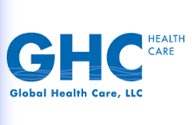THE NATIONAL HEALTHCARE TRANSPARENCY SUMMIT
Health care in the United States doesn't function like other markets, in that there is far less information broadly available on price and quality than is the case in markets for other goods and services. As a result, purchasers and patients often lack the knowledge they need or would like to have to make intelligent decisions about buying or accessing care.
But change is occurring quickly, and the health care market is gradually becoming more "transparent." For example, when the federal government recently released data on US hospitals' Medicare charges, the information was quickly downloaded more than 300,000 times. A Time magazine article by Steven Brill detailing the complexities of hospital charges was one of the most widely read magazine articles of recent years.
The trend toward greater transparency holds great potential to help make the health care market more efficient; improve the value that Americans receive from care; and make the entire health care system more financially sustainable over the long run.
This National Summit will focus on what everyone who has a stake in health care needs to know about this growing transparency movement, as follows:
- Who is innovating in making information about health care price and quality more transparent, and how?
- What are the roles of hospitals, health plans, governments and businesses in making cost and quality more transparent?
- What are the practical and policy objectives to be achieved in making health care prices and quality more transparent?
- The plusses of transparency seem obvious, but are there any downsides -- and if so, what and why?
- What types of measurement need to be developed so that patients and purchasers can best understand the multiple important dimensions of health care quality and cost?
WHO SHOULD ATTEND:
- Hospital and health system leaders seeking to understand the trend toward greater transparency and how it will affect their organizations
- Doctors, nurses and other clinical professionals
- Health plans and other care purchasers who want to know what information is becoming available and how to use it
- Patients, consumers and advocates who want to know more about how to access better information and what to do with it
- Federal, state and local government officials
- Academics and health services researchers seeking more insight into transparency trends
- Entrepreneurs interested in knowing more about the market for transparency tools
- International health system participants wanting to understand trends in the United States and how these may affect systems elsewhere
LEARNING OBJECTIVES:
- Establish the Policy Objectives of Increased Healthcare Transparency
- Explain the Obama Administration's Healthcare Transparency Agenda
- Explain the Republican Perspective on Healthcare Transparency
- Identify Barriers to Transparency and How to Overcome Them
- Assess Private Sector Providers of Transparent Information
- Describe the New CMS Transparency of Hospital Inpatient and Outpatient Pricing Data
- The Role of HIXs in Fostering Transparency on Health Plan Cost and Quality
- Discuss the Role of Physicians, Hospitals, Health Plans and Employers in Healthcare Transparency
- Analyze the Role of Market Structure and Consolidated Markets in Healthcare Transparency
- Dialogue Regarding Carrying the Transparency Movement Forward

